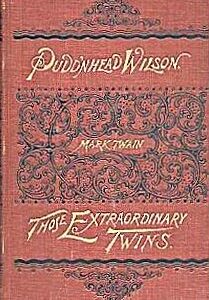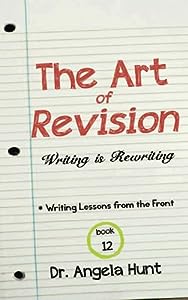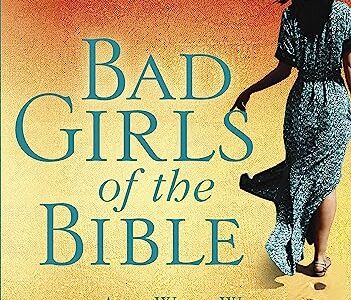In the United States, most people get health insurance through their employer’s benefits program. But if you work as an author, your publisher doesn’t offer you a health plan; and if you’re an indie author, you’re on your own.
How does a professional author find a health insurance plan?
Good news! It is easier and cheaper than you might think.
The short answer is Christian healthcare sharing, where Christians share with one another to cover healthcare costs. Christian healthcare sharing started over 80 years ago when some Christians had theological problems with traditional insurance.
They cited several passages from Proverbs (NLT) to defend their position against insurance:
- Proverbs 11:15: “There’s danger in putting up security for a stranger’s debt; it’s safer not to guarantee another person’s debt.”
- Proverbs 17:18: “It’s poor judgment to guarantee another person’s debt or put up security for a friend.”
- Proverbs 6:1-5: “My child, if you have put up security for a friend’s debt or agreed to guarantee the debt of a stranger— if you have trapped yourself by your agreement and are caught by what you said—follow my advice and save yourself, for you have placed yourself at your friend’s mercy. Now swallow your pride; go and beg to have your name erased. Don’t put it off; do it now! Don’t rest until you do. Save yourself like a gazelle escaping from a hunter, like a bird fleeing from a net.”
Some Christians see insurance as “putting up surety for your neighbor.”
How does Christian healthcare sharing work?
As health insurance came into use in the 1940s, Christians with a moral objection to it started creating alternatives for themselves. The Christian healthcare sharing programs they created were based on Galatians 6:2, where the apostle Paul tells us to “Share each other’s burdens, and in this way obey the law of Christ” (NLT).
In a Christian healthcare sharing program, a Christian can become a member of the program and donate money monthly to a fund that covers the healthcare costs of its members. The program handles the logistics of “sharing each other’s burdens” without anyone becoming “surety” for anyone else. Members are only required to donate the specified amount each month.
Where did regular health insurance come from?
It was Hitler’s fault. He started WWII, which the US eventually got pulled into. While the US was at war, the American government enacted wage and price controls; and it became illegal to give employees raises or to raise product prices. Americans had ration cards for things like sugar and gas.
As a result, factory owners who needed more employees had to find creative ways around the wage controls set by the federal government. One of the loopholes was to offer fringe benefits like health insurance.
After the war, the fringe benefits remained. More companies started offering health insurance to remain competitive. Throughout the next decades, these benefit programs started to get tax advantages, making them even more popular. Employers are taxed when they pay employees, but they pay less tax (sometimes no tax) on money spent on health insurance.
But the big problem with health insurance is what economists call the third-party payer problem.
Normally, when you buy something, you spend your own money, so you want to get the best bang for your buck. But when you spend someone else’s money, you stop caring about cost or need. Such was the case with companies administering health insurance. The result was a massive inflation in the cost of healthcare.
For example, a typical visit to the doctor in 1967 cost $5.00.
According to the Social Security Administration, if someone had a heart attack in 1967 and spent 21 days in the hospital, the total bill would be $110. The report notes that the $110 cost was a big jump from just a few years prior.
If you adjust $110 for inflation, it comes to $1,011.16 in 2023. If you had a heart attack today and spent 21 days in the hospital, would it cost $1,000?
Not a chance.
The third-party payer problem and the resulting inflation would make your 21-day hospital stay cost as much as a car and possibly a house. That’s why healthcare costs are the #1 cause of bankruptcy in the United States.
Healthcare costs threaten Western civilization, as 19.7% of the US GDP now goes to medical expenses. One dollar in five is spent on health care.
We have a problem caused by too many people using insurance companies as third-party payers.
What’s the solution to our healthcare problems?
In 2010, Congress passed, and the president signed, the Affordable Care Act. The new law required everyone to get health insurance or pay a fine. “If having a third-party payer is the problem,” the government reasoned, “perhaps it will be less of a problem if we all do it together.”
Sigh. If we understood our history better, we could create better solutions for the future.
Interestingly, the Affordable Care Act specifically carved out Christian healthcare sharing plans as qualified alternatives to health insurance. If you had a recognized healthcare sharing plan, you didn’t have to pay the penalty for being uninsured.
That caused these otherwise little-known programs to become very popular. They had worked well for decades; and now, with even more people paying in, they work even better.
With all that historical context out of the way, what is Christian healthcare sharing, and how does it work?
How does Christian healthcare sharing work?
There are three main Christian healthcare sharing programs, and they each work a little differently.
- Samaritan Ministries
- Christian Healthcare Ministries
- Medi-Share
These are not the oldest programs, but they are open to the greatest number of Christians. Some of the oldest programs are run by denominations and are not open to people outside that denomination.
There are other healthcare sharing programs I’m less familiar with, including:
- Liberty HealthShare
- Altrua HealthShare (not limited to practicing Christians)
For full disclosure, I use Christian Healthcare Ministries (affiliate link). If you use that link when you sign up, you help support this podcast.
My parents use Samaritan Ministries, and I have extended family who use Medi-Share. Based on my knowledge and a lot of research, I’ll summarize each program and then talk about our experience with CHM.
Commonalities Between the Three Programs
All three organizations are limited to practicing Christians. Details vary between the three as to what that means, but in general it means:
- No illegal drugs
- No tobacco
- No sexual immorality
- Regular attendance at a Christian church as your health permits.
None of the healthcare sharing programs cover abortions or gender-change surgery, which is another reason some Christians choose a healthcare sharing ministry over an insurance provider. As far as I know, all the big insurance providers have programs that pay for abortions and gender-change surgeries. So, even if your plan doesn’t offer it, money is fungible; and your dollars paid to big health insurance conglomerates help fund abortions.
Samaritan Ministries
Cost: $105 – $437/month
Of the three programs, Samaritan Ministries is the most old-school. Each month, you get the name and address of a fellow believer who has an approved medical need and their prayer requests. You then write that person a check (or pay them through PayPal), and you are encouraged to pray for them.
If you have a medical need, you submit it to Samaritan Ministries, and your fellow program members write checks and send them to you. I can only imagine how encouraging it must be to get checks and prayers from fellow Christ-followers around the country.
Samaritan Ministries has the best method for working prayer into the process.
The downside of this method is that if your financial need is great, you may be dealing with hundreds of checks, which becomes a big project. One person I know had a lot of medical expenses, and dealing with the flood of checks from fellow Christians in the program became a part-time job.
That said, it’s hard to complain about hundreds of checks and prayers from Christians around the country.
Samaritan Ministries has a reputation for being more open to functional medicine like chiropractic and homeopathy, while Medi-Share and CHM are not. However, all three programs support midwives, which is encouraging.
My friends and family who use Samaritan Ministries are all happy with it. Some really like praying for fellow believers as they write each month’s check. They also like that it’s the cheapest option.
Medi-Share
$125 – $1,035/month
Of the three, Medi-Share is the most like traditional insurance as they have provider networks, various levels and options, and acronyms (AHP stands for Annual Household Portion, a.k.a. your deductible). I found Medi-Share’s website the most complicated of the three I researched.
Medi-Share also offers a discount for healthy people.
I think Medi-Share pays providers directly, rather than reimbursing you; but I’m not sure. If you use Medi-Share, please share your experiences in the comments at AuthorMedia.social.
My friends and family who use Medi-Share are all happy with it.
Christian Healthcare Ministries
Cost $90 – $705/month
Christian Healthcare Ministries (affiliate link) wins the award for the most generic name of the three. It’s so generic that no one can remember it, so we call it CHM.
Paying is much easier with CHM because it allows us to set up automatic payments through our credit card. For me, writing and mailing a check each month through Samaritan Ministries was a deal breaker. CHM lets me do it all online automatically.
In terms of pricing, CHM is fairly simple. They have three levels: Gold, Silver, and Bronze. The better the metal, the lower your deductible and the higher your monthly payment (they call the deductible your “personal responsibility”).
They describe your family size in “units.” When I was young and single, I was one unit on the Bronze plan because I was young and “invincible” and never went to the doctor.
When I got married, we became two units with CHM. I also upgraded from Bronze to Gold in case we got pregnant. And wouldn’t you know it, we did get pregnant! Nine months later, we became three units.
The great thing about CHM is that all my children share a unit. Even though we have a family of five, we are still only three units with CHM. One unit for me, one for my wife, and one for our children.
We’ve had three babies while with CHM. The two uncomplicated pregnancies cost about $25,000 each, but we never had to pay more than $1,000 out of pocket for each baby. CHM covered roughly $24,000 of each pregnancy.
One of our babies went to the NICU, but knowing that CHM would cover those NICU costs was a relief. Someone from CHM even called to check on us, congratulate us, and pray for us.
The process of paying was a little more work than traditional insurance, but it worked. When we were charged for services, we would tell the provider, “We are self-pay patients,” and they would typically offer a big discount.
We’d pay the bill and submit the receipt to CHM for reimbursement. About six months later, CHM would issue us a reimbursement check. We had one big bill that we couldn’t pay all at once, and I think they paid that one directly to the provider; but they generally reimbursed us.
The one hassle is that CHM won’t accept a receipt without a CPT code. While that’s annoying, I’ve realized they require it because hospitals overcharge patients for phantom services if they can get away with it.
On several occasions, our bills have been “magically” reduced once the hospital had to provide the CPT code for each item. The more squirrely a hospital is about providing CPT codes, the more shenanigans they are up to. CHM has a Patient Advocate Team to help you navigate the medical bureaucracy, but we’ve never used it.
I’m motivated to fight for discounts, knowing that my fellow believers share my burdens.
I’ve also found that physicians and other medical professionals treat me differently when I’m the customer as opposed to my insurance company being the customer. Medical professionals tell me what is actually needed and what is not needed.
I can’t tell you how often I’ve heard, “Oh, you’re self-pay! You don’t really need this.” That makes for better outcomes. You don’t want to buy more than you need since medical errors are the third leading cause of death.
Additionally, the services I do pay for are much cheaper for me as a self-pay patient than someone paying off a deductible.
I had a bunch of blood work done last week; and when I told the doctor I was self-paying, he wrote a special note on the blood work order asking the lab to run discounts on each test. They ended up dropping the price by around 70%! The $3,000 bill dropped to around $600. If I’d had traditional insurance with an unmet deductible, I would have had to pay $3,000.
Since Christian healthcare sharing is not insurance, it helps solve the third-party payer problem. Since I have to wait to be reimbursed, and I know that my fellow believers are sharing my burdens, I start acting like a customer trying to get the best deal, rather than a football player trying to eat as much as possible at the buffet.
CHM coverage is on a per-illness basis. I had surgery a few years ago, and there were some complications after the surgery that landed me in urgent care with blood coming out of my eyes.
Thankfully, 100% of the cost of that urgent-care visit was covered by CHM since I had already paid all my “personal responsibility” for the surgery itself. But my wife drove me to urgent care, rather than the ER, so the cost would be less of a burden to our fellow Christians in the program. Urgent care was also closer to our house.
Finally, CHM offers free Teladoc telemedicine. We can schedule a telemedicine call with a doctor at no additional cost. This service is invaluable for parents of small children, who spend every waking moment looking for innovative ways to injure themselves. It can be hard for a panicking parent to distinguish a minor booboo from something more serious. Having a nurse or doctor available via Zoom is an amazing service.
My Advice
Personally, I prefer Christian healthcare sharing to traditional insurance. When I was single, I had a high-flying job that offered fancy health insurance; but I kept my membership to CHM because I trusted it more than the insurance.
Depending on which of these three programs you choose, they are likely hundreds of dollars cheaper than a program through Healthcare.gov. I recommend you go to Healthcare.gov and find the cost of the plan you would have signed up for. Then, set aside that amount of money each month for your healthcare expenses. Pay your “healthcare sharing amount” (otherwise known as your premium), and put the rest into a savings account. The money in your savings account will act as a buffer while you wait for reimbursement checks.
I’ve been a member of Christian Healthcare Ministries since 2016, and I have been very happy with them. If you have experience with any of these programs, please share your experience in the comments at AuthorMedia.social.
Featured Patron
Deborah Raney, author of Bridges (Affiliate Link)
Tess Everett’s life is thrown into a tailspin with the arrival of J.W. McRae, a former resident of Winterset, Iowa, and the ex-husband of Tess’s late friend. Sparks fly as Tess and J.W. clash over his past abandonment of his son, Wynn, whom Tess and her late husband, Dan, took under their wings. Set in the famous covered bridges of Madison County, Iowa, Tess must face the struggles of an empty nest for the first time in three years while navigating the resurfacing of J.W. and the consequences of his return. If you enjoyed The Bridges of Madison County, you’ll also love this story of heartache, redemption, and the power of love.





